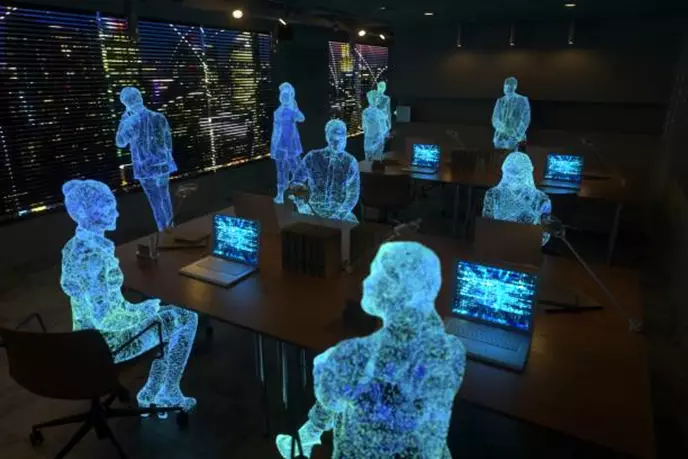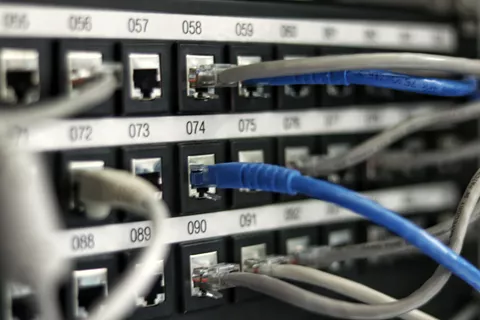The Future of Work: What an office in the Metaverse Could Look Like
By Varun Bodhi

The future of work is looking very different than it did just a few years ago. With the advent of new technologies, such as Virtual Reality (VR), Augmented Reality (AR), and the Metaverse, more and more businesses are moving their professional operations into cyberspace.
There are many benefits to working in the metaverse, including increased flexibility, efficiency, and productivity. Companies that have already made the transition are seeing interesting results, but before we explore these benefits in further detail, let's first take a look at what exactly the metaverse is.
What is the metaverse?
The metaverse is a virtual world that exists on the internet. It is made up of many different Virtual Reality (VR) and Augmented Reality (AR) environments which people can explore and interact with. Think of it like an online version of the real world, where you can meet new people, visit new places, and do just about anything you can imagine.
One of the biggest advantages of working in the metaverse is that it gives you the ability to work from anywhere in the world. With a virtual office, you are no longer tied down to one location. This essentially means that you can live and work wherever you want. You also have the flexibility to set your own hours and work around your personal schedule.
How to access the metaverse
The metaverse is accessible through a variety of different platforms, including VR headsets, AR glasses, and mobile devices. There are many different metaverse platforms to choose from, each with its own unique features and capabilities.
Some of the most popular metaverse platforms include:
- Second Life: One of the oldest and most well-known metaverse platforms. It is used by businesses of all sizes, from small startups to large corporations.
- Sansar: A newer metaverse platform created by the team behind Second Life. It is designed to be more user-friendly and accessible than its predecessor.
- High Fidelity: Another popular metaverse platform that enables users to create their own virtual world.
- VRChat: A social metaverse platform that is popular with gamers and has a large community of users.
Will marketing be better in the metaverse?
One of the most interesting questions about the metaverse is how it will impact marketing and advertising. Virtual reality provides a new and unique way to engage with customers and promote products. In the metaverse, businesses will be able to create immersive experiences that allow customers to try before they buy. This could reinvent the way companies market their products and services.
However, there are a few potential downsides to marketing in the metaverse. One is that it could be easy to overspend on marketing campaigns. Virtual reality is still a new technology, and businesses may not be able to accurately gauge the ROI of their metaverse campaigns. Another downside is that customers may not be ready for the change. Virtual reality is still a niche technology, and not everyone is comfortable with the idea of trying it out.
Furthermore, for marketing campaigns and businesses to successfully continue their operations in the metaverse, there needs to be a high enough volume of users. The users should also be part of the business's target demographic, which will require a platform analysis with extensive time and capital expended on an experimental platform.
Can the metaverse improve workplace communication?
One of the main benefits of working in the metaverse is that it can improve communication and collaboration between employees. Virtual reality enables people to meet and work together in a shared virtual space, no matter where they are in the world. This can make it easier to connect with colleagues and clients, as well as build relationships with other professionals.
The metaverse can also help to improve communication within a company. With a virtual office, employees can have direct access to their colleagues and managers. This can make it easier to resolve issues and keep everyone on the same page.
What are the impacts of working in the metaverse?
Virtual reality has the potential to revolutionise both our personal and professional lives. For businesses, the transition to the metaverse could be a game-changer. Virtual offices would allow employees to work from anywhere in the world, and marketing campaigns could be taken to a whole new level.
Although Servcorp’s virtual offices already enable businesses to work from anywhere in the world, the metaverse adds a different visual element.
The metaverse could also have a significant impact on our personal lives. Virtual reality has the ability to transport us to different worlds and provide us with experiences that we could never have in the real world. For some, the metaverse may even become a second home.
Albeit the technology behind this sounds enticing, the transition to the metaverse will not be without its challenges.
What are the downsides of working in the metaverse?
While there are many advantages to working in the metaverse, there are also some potential downsides to consider. One of the biggest risks is that people may become too reliant on technology. If employees are unable to communicate or collaborate effectively in the real world, it could have a negative impact on their work.
Another downside of working in the metaverse is that it can be isolating. Virtual reality can be a great way to connect with people from all over the world, but it can also be easy to feel isolated if you're not used to working by yourself.
The same form of isolation was also seen during the common occurrence of Zoom fatigue. This had peaked during the earlier stages of working from home and created a disconnection between face-to-face colleague communication.
Finally, there is the risk that companies may not be ready for the transition. The metaverse is still a new and evolving technology, and not all businesses are prepared for the change. Although it is developed enough to use, the technology itself may not foster the desired environment for every business and completing a full transition requires extensive research.
For now, most businesses will view the metaverse purely as an idea without giving it much importance, however keeping up with all forms of technology which can give businesses a competitive edge should not be overlooked.
Contact Us
If you’ve got any questions call us 1300 409 755 or fill in your information below and we’ll get back to you shortly.





